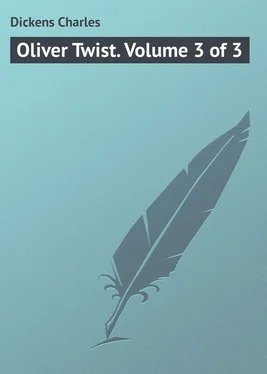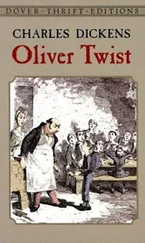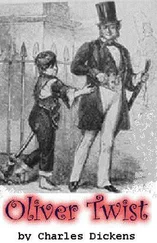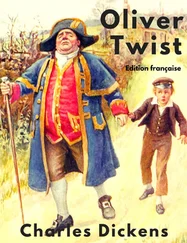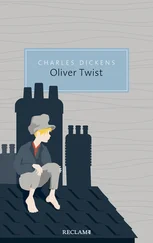Charles Dickens - Oliver Twist. Volume 3 of 3
Здесь есть возможность читать онлайн «Charles Dickens - Oliver Twist. Volume 3 of 3» — ознакомительный отрывок электронной книги совершенно бесплатно, а после прочтения отрывка купить полную версию. В некоторых случаях можно слушать аудио, скачать через торрент в формате fb2 и присутствует краткое содержание. ISBN: , Жанр: foreign_prose, на английском языке. Описание произведения, (предисловие) а так же отзывы посетителей доступны на портале библиотеки ЛибКат.
- Название:Oliver Twist. Volume 3 of 3
- Автор:
- Жанр:
- Год:неизвестен
- ISBN:http://www.gutenberg.org/ebooks/47531
- Рейтинг книги:3 / 5. Голосов: 1
-
Избранное:Добавить в избранное
- Отзывы:
-
Ваша оценка:
- 60
- 1
- 2
- 3
- 4
- 5
Oliver Twist. Volume 3 of 3: краткое содержание, описание и аннотация
Предлагаем к чтению аннотацию, описание, краткое содержание или предисловие (зависит от того, что написал сам автор книги «Oliver Twist. Volume 3 of 3»). Если вы не нашли необходимую информацию о книге — напишите в комментариях, мы постараемся отыскать её.
Oliver Twist. Volume 3 of 3 — читать онлайн ознакомительный отрывок
Ниже представлен текст книги, разбитый по страницам. Система сохранения места последней прочитанной страницы, позволяет с удобством читать онлайн бесплатно книгу «Oliver Twist. Volume 3 of 3», без необходимости каждый раз заново искать на чём Вы остановились. Поставьте закладку, и сможете в любой момент перейти на страницу, на которой закончили чтение.
Интервал:
Закладка:
“Where is it now?” asked Monks quickly.
“ There ,” replied the woman. And, as if glad to be relieved of it, she hastily threw upon the table a small kid bag scarcely large enough for a French watch, which Monks pouncing upon, tore open with trembling hands. It contained a little gold locket, in which were two locks of hair, and a plain gold wedding-ring.
“It has the word ‘Agnes’ engraved on the inside,” said the woman. “There is a blank left for the surname, and then follows the date, which is within a year before the child was born; I found out that.”
“And this is all?” said Monks, after a close and eager scrutiny of the contents of the little packet.
“All,” replied the woman.
Mr. Bumble drew a long breath, as if he were glad to find that the story was over, and no mention made of taking the five-and-twenty pounds back again; and now took courage to wipe off the perspiration, which had been trickling over his nose unchecked during the whole of the previous conversation.
“I know nothing of the story beyond what I can guess at,” said his wife, addressing Monks after a short silence, “and I want to know nothing, for it’s safer not. But I may ask you two questions, may I?”
“You may ask,” said Monks, with some show of surprise, “but whether I answer or not is another question.”
“ – Which makes three,” observed Mr. Bumble, essaying a stroke of facetiousness.
“Is that what you expected to get from me?” demanded the matron.
“It is,” replied Monks. “The other question? – ”
“What you propose to do with it. Can it be used against me?”
“Never,” rejoined Monks; “nor against me either. See here; but don’t move a step forward, or your life’s not worth a bulrush!”
With these words he suddenly wheeled the table aside, and pulling an iron ring in the boarding, threw back a large trap-door which opened close at Mr. Bumble’s feet, and caused that gentleman to retire several paces backward with great precipitation.
“Look down,” said Monks, lowering the lantern into the gulf. “Don’t fear me. I could have let you down quietly enough when you were seated over it, if that had been my game.”
Thus encouraged, the matron drew near to the brink, and even Mr. Bumble himself, impelled by curiosity, ventured to do the same. The turbid water, swollen by the heavy rain, was rushing rapidly on below, and all other sounds were lost in the noise of its plashing and eddying against the green and slimy piles. There had once been a water-mill beneath, and the tide, foaming and chafing round the few rotten stakes, and fragments of machinery, that yet remained, seemed to dart onward with a new impulse when freed from the obstacles which had unavailingly attempted to stem its headlong course.
“If you flung a man’s body down there, where would it be to-morrow morning?” said Monks, swinging the lantern to and fro in the dark well.
“Twelve miles down the river, and cut to pieces besides,” replied Bumble, recoiling at the very notion.
Monks drew the little packet from his breast, into which he had hurriedly thrust it, and tying it firmly to a leaden weight which had formed a part of some pulley, and was lying on the floor, dropped it into the stream. It fell straight, and true as a die, clove the water with a scarcely audible splash, and was gone.
The three looked into each other’s faces, and seemed to breathe more freely.
“There!” said Monks, closing the trap-door, which fell heavily back into its former position. “If the sea ever gives up its dead – as books say it will – it will keep its gold and silver to itself, and that trash among it. We have nothing more to say, and may break up our pleasant party.”
“By all means,” observed Mr. Bumble with great alacrity.
“You’ll keep a quiet tongue in your head, will you?” said Monks, with a threatening look. “I am not afraid of your wife.”
“You may depend upon me, young man,” answered Mr. Bumble, bowing himself gradually towards the ladder with excessive politeness. “On every body’s account, young man; on my own, you know, Mr. Monks.”
“I am glad for your sake to hear it,” remarked Monks. “Light your lantern, and get away from here as fast as you can.”
It was fortunate that the conversation terminated at this point, or Mr. Bumble, who had bowed himself to within six inches of the ladder, would infallibly have pitched headlong into the room below. He lighted his lantern from that which Monks had detached from the rope, and now carried in his hand, and, making no effort to prolong the discourse, descended in silence, followed by his wife. Monks brought up the rear, after pausing on the steps to satisfy himself that there were no other sounds to be heard than the beating of the rain without, and the rushing of the water.
They traversed the lower room slowly, and with caution, for Monks started at every shadow, and Mr. Bumble, holding his lantern a foot above the ground, walked not only with remarkable care, but with a marvellously light step for a gentleman of his figure: looking nervously about him for hidden trap-doors. The gate at which they had entered was softly unfastened and opened by Monks, and, merely exchanging a nod with their mysterious acquaintance, the married couple emerged into the wet and darkness outside.
They were no sooner gone, than Monks, who appeared to entertain an invincible repugnance to being left alone, called to a boy who had been hidden somewhere below, and bidding him go first, and bear the light, returned to the chamber he had just quitted.
CHAPTER XXXVIII
INTRODUCES SOME RESPECTABLE CHARACTERS WITH WHOM THE READER IS ALREADY ACQUAINTED, AND SHOWS HOW MONKS AND THE JEW LAID THEIR WORTHY HEADS TOGETHER
It was about two hours earlier on the evening following that upon which the three worthies mentioned in the last chapter disposed of their little matter of business as therein narrated, when Mr. William Sikes, awakening from a nap, drowsily growled forth an inquiry what time of night it was.
The room in which Mr. Sikes propounded this question was not one of those he had tenanted previous to the Chertsey expedition, although it was in the same quarter of the town, and was situated at no great distance from his former lodgings. It was not in appearance so desirable a habitation as his old quarters, being a mean and badly-furnished apartment of very limited size, lighted only by one small window in the shelving roof, and abutting upon a close and dirty lane. Nor were there wanting other indications of the good gentleman’s having gone down in the world of late; for a great scarcity of furniture, and total absence of comfort, together with the disappearance of all such small moveables as spare clothes and linen, bespoke a state of extreme poverty, while the meager and attenuated condition of Mr. Sikes himself would have fully confirmed these symptoms if they had stood in need of corroboration.
The housebreaker was lying on the bed wrapped in his white great-coat, by way of dressing-gown, and displaying a set of features in no degree improved by the cadaverous hue of illness, and the addition of a soiled nightcap, and a stiff, black beard of a week’s growth. The dog sat at the bedside, now eyeing his master with a wistful look, and now pricking his ears, and uttering a low growl as some noise in the street, or in the lower part of the house, attracted his attention. Seated by the window, busily engaged in patching an old waistcoat which formed a portion of the robber’s ordinary dress, was a female, so pale and reduced with watching and privation that there would have been considerable difficulty in recognising her as the same Nancy who has already figured in this tale, but for the voice in which she replied to Mr. Sikes’s question.
Читать дальшеИнтервал:
Закладка:
Похожие книги на «Oliver Twist. Volume 3 of 3»
Представляем Вашему вниманию похожие книги на «Oliver Twist. Volume 3 of 3» списком для выбора. Мы отобрали схожую по названию и смыслу литературу в надежде предоставить читателям больше вариантов отыскать новые, интересные, ещё непрочитанные произведения.
Обсуждение, отзывы о книге «Oliver Twist. Volume 3 of 3» и просто собственные мнения читателей. Оставьте ваши комментарии, напишите, что Вы думаете о произведении, его смысле или главных героях. Укажите что конкретно понравилось, а что нет, и почему Вы так считаете.
